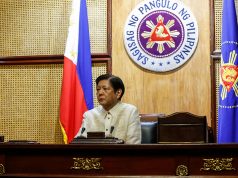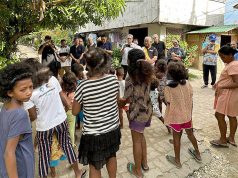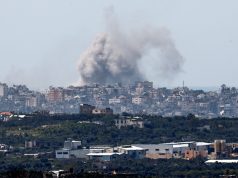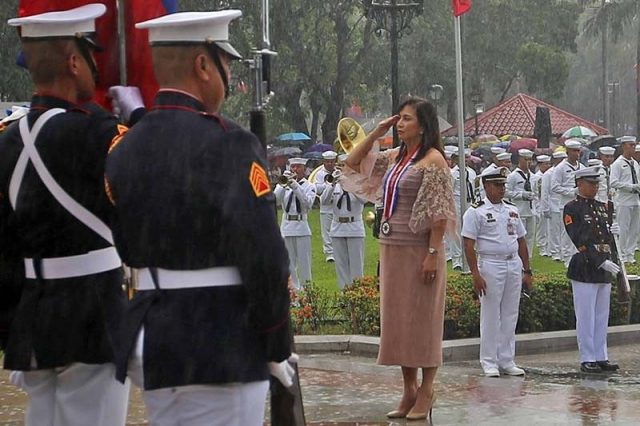
(Updated 3:01 p.m.) Vice President Leni Robredo issued a clarification on Sunday, October 27 after an international news outlet reported her statement about the war on drugs.
In her weekly radio show “BISErbisyong Leni,” she claimed she was misquoted after she reviewed the transcript of her earlier interview with Reuters. She said in Filipino:
“It’s hard… because headlines are sending another message. For example, I saw headlines that claim I called the drug war a failure so it should be stopped.
“If you review the interview, I said something else. If you look at it, what I said what the government should assess if the counternarcotics strategy being used is still right. Because it isn’t, it should be tweaked. Isn’t that to ‘tweak’ means to massage, to shift it a bit.”
Robredo and President Rodrigo Duterte have had a frosty relationship. Robredo, who belongs to an opposition party, was outspoken against killings in the controversial crackdown on illegal drugs of the government.
While Robredo has long maintained that the approach in combating illegal drugs should not be through violence, she said that more effective aspects of the drug war should be maintained and even strengthened.
“Isn’t it just right that they assess whatever is not working in the campaign? Because if you started with 1.4 million [drug users] despite the campaign and then it becomes 7 to 8 million, there’s something not working,” she added in Filipino.
In the earlier Reuters interview, Robredo said Duterte should allow the United Nations’ probe on the alleged human rights violations caused by the war on drugs that is “not working.”
“We ask ourselves, ‘why is this still happening?’. The president has already made very serious threats to drug syndicates, to drug lords … and yet it’s still very prevalent, so obviously, it’s not working,” Robredo said.
“We have seen a lot of police that have abused their powers and not been penalized so this is where the International Criminal Court could come in, if we do not show the world that we can take care of our own mess,” she continued.
Reuters, meanwhile, stood by its interpretation of Robredo’s position that she urged President Duterte to abandon a deadly campaign that has been a failure.
“Reuters fairly and accurately represented the statements of Philippine vice president Leni Robredo, and we stand by our story published on 23 October,” said Tyler Thia, communications manager of the wire service for Asia Pacific, in a statement on Tuesday, October 29.
Lost in translation?
Robredo admitted she gets attacked online every time she expressed her disagreement on Duterte’s drug campaign.
That the vice president is neither for the drug war nor completely against it is lost to many Filipinos online.
Comments on news reports misconstrue Robredo’s message and position.
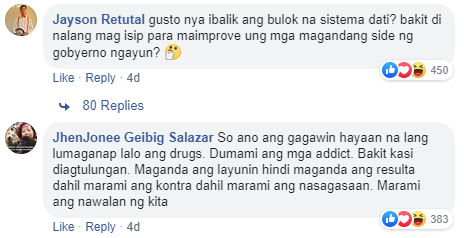
Her clarification that she did not say the drug war should be halted, however, was also perceived as a weaker message.
It might have been even better if Leni had said EXACTLY that: to focus on supply not dealers/users. Messages have to come across even more clearly in today's world. They get muddled way too easily. https://t.co/L0OgkmLSIU
— Irineo B. R. Salazar (@ibrsalazar) October 27, 2019
I agree. Statements should be categorical. And VP Leni, even if she said stop the drug war would still be correct. Tweaking it makes the statement less of a statement. She should muster more courage
— [email protected] (@williamperez973) October 28, 2019
A controversial but popular policy
Tens of thousands of suspected drug users and dealers since Duterte’s ascent in 2016 have been killed in numerous police counternarcotics operations. A few local executives whose names appear in intelligence reports disclosed by Malacañang have also been executed.
Signs that the supply of drugs in the country has been diminished by the campaign, however, are scant.
The rising death toll and the government’s lack of transparency in the war on drugs prompted international bodies to call for a thorough, independent investigation into the policy. United Nations experts have also repeatedly urged the Philippines to halt extrajudicial killings in the so-called war.
A majority of Filipinos, however, remained “satisfied” with the campaign but do not want the government to block investigation of international groups. — with reports from Catalina Ricci Madarang




